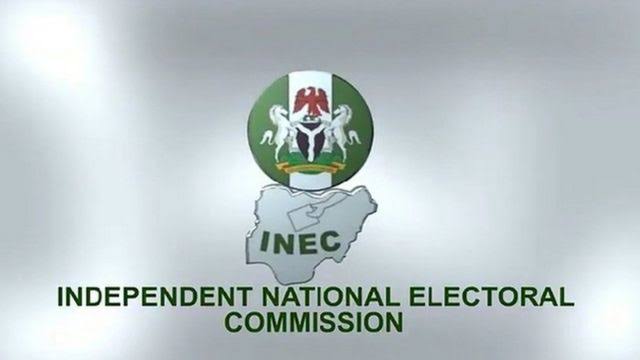The fall in oil prices alone is enough for the blind to see that Nigeria is financially down. President Buhari must therefore tighten government’s belt and block all leakages. In so doing, he has to have in his sub-consciousness that the Nigeria ghost is special.
Thus, the term “ghosts” as used in this article is more than a non-existent entity that functions as though it is alive when in reality it is not.
The Nigerian ghost is in various forms and shapes just as it presents itself in several dimensions. Its history easily reveals a rather large figure that is disturbingly high enough to make anyone wonder if there are not more ghosts than the ordinary workers in our public sector.
As far back as April 2001, the then Accountant General of the Federation Chief Joseph Naiyeju revealed that there were 40,000 ‘ghost workers’ in the Nigerian government service.
Two years later, 24,000 ghosts were identified in the pension’s unit of the Ministry of Defence alone.
The Information Ministry allegedly had 40% under-qualified staff and 20 percent ghost workers. The Federal Civil Service Commission authenticated the revelation with a report that over 30 percent of the workers on its payroll were phantom staff.
Before the Jonathan Administration left office, its Finance Minister, Dr. Ngozi Okonjo-Iweala, said that the Integrated Financial Management System (GIFMS) introduced by government discovered some 62, 893 ghost workers. She also explained that the case had been transferred to the Independent Corrupt Practices Commission (ICPC) for prosecution of those involved. The ICPC actually confirmed that it was investigating the scam. Its Chairman, Mr. Ekpo Nta, told newsmen in Abuja that the investigation was being done through banks because the banks were supposed to have the data of those that withdrew the salaries.
If this was done, how come more ghosts are appearing by the day or was it not done? This is a pertinent question to answer following the recent revelation by the Director-General, Bureau of Public Service Reforms, Dr Joe Abah that the Integrated Payroll and Personnel Information system (IPPIS) has thrown up no less than 65,000 ghost workers.
There have indeed been new more with the introduction of the Biometric Verification Number (BVN) policy.
Finance Minister Kemi Adeosun told the Senate in February that one civil servant alone was collecting 20 salaries every month- a system which probably thrives better in the states. In Kogi, one civil servant was alleged to have single handedly added 300 bogus names to the pay roll.
How is government handling the disturbing issue? At the federal level, Minister Adeosun says the Economic and Financial Crimes Commission (EFCC) will soon prosecute 43,000 persons so far discovered as ghost workers; meaning that our ghosts are real. She spoke at the venue of the IPPIS verification of staff on the payroll of the Nigeria Police Force at the Area Command in Sagamu.
Information Minister Lai Mohammed, told some selected On-Air-Personalities at a meeting in Lagos that government had handed over to the Police some top civil servants involved in employment racketeering.
If the discoveries of Okonjo-Iweala were handed over to the ICPC, while those found by Adeosun are to face EFCC and Lai Mohammed is talking about police prosecution, it shows that with too many cooks in the ghost kitchen, the subject can be adversely affected by the usual lack of institutional synergy. The President must wade in here because Nigerian fraudsters can turn anybody to a ghost.
It happened in Plateau State during the administration of Governor Jang when it was discovered that somebody according to the government “appointed himself as commissioner and was receiving salaries and other perks of office as one.” Delegation of duties is good but not for the ghost issue which has turned into a hydra-headed phenomenon.
As the new governor of Kogi State must have found, ghosts in the state are not just individuals. Kogi has always known that it has some 800 ghost schools. This and many other bizarre things can also happen at the federal level if care is not taken. For example, the many ghosts in Zamfara state at a point included a one month-old infant earning N24, 000 a month.
In Bauchi, a committee set up by the State Government to fish out ghost workers discovered names of eight-year old children as “teachers” on the payroll of the government. In Imo, Governor Okorocha on assumption of office angrily ordered the transfer of all accountants in the state civil service having found the siphoning of over a billion naira to pay ghost workers. Now in his second tenure, Okorocha is convinced that the “state government pays wrong people salaries when on a visit, he painfully found only one nurse in a hospital that has 14 doctors” It is only fair that we also alert the President of false alarmists as some exercises are deliberately programmed to produce wrong figures. For example, no one knows the technology which declared the Kogi State chairman of Nigeria Labour Congress (NLC) Comrade Onuh as a ghost worker.
No one similarly knew how the office of the auditor-general of the federation found that many government bodies including the Central Bank had no audit reports for 2010-2014. The Senate was forced to declare the auditor general incompetent when the alleged offending bodies showed copies of audit reports sent to him.
So, such false alarmists exist just as fraudsters can beat any device including technology. When for instance the National Identity Management Commission that can identify us all carried out its own biometric data capture exercise, as many as 4000 of its 10,000 workers were ghosts.
It is now well over 15years after the Government White Paper on the report by Ahmed Joda’s Panel approved that some bodies be scrapped, commercialized or self-funding. But they are still receiving full Government funding. So ghost workers are ingenious and greater ingenuity is required to beat them. At some point, our Information Ministry reportedly had a syndicate which was posting people to ministries with exactly the same letter as the one in use in the Civil Service Commission. Does anyone know where the syndicate is currently domiciled?












What on earth has Okonjo-Iweala done to the APC and its government? Can they just leave her alone and face the serious business of governance? Is it an offence to serve one’s fatherland honourably?
You missed the basic points. How on earth can any sane person blame a minister for the president’s error? How come people don’t blame Buhari for Abacha’s dictatorship? If you can’t do these, why would you blame Okonjo-Iweala now?
Till date, no other Finance Minister has been able to beat Madam Okonjo-Iweala’s records in terms of discovering the loopholes in Nigeria’s payroll system and safeguarding Nigeria’s treasury against future occurrence. This woman deserves a national award for bringing this major epidemic to light; no wonder her political enemies would use every opportunity to spoil her reputation.
I liked the fact that you emphatically stated that Dr Ngozi Okonjo-Iweala said that the Integrated Financial Management System (GIFMS) introduced by government discovered some 62, 893 ghost workers. She also explained that the case had been transferred to the Independent Corrupt Practices Commission (ICPC) for prosecution of those involved. Where I sensed bias in you throwing subtly thowing the question of how the ghost workers are coming to light in this present dispensation. Okonjo-Iweala’s job was never to decide or determine what should be done to the ghost workers, she was supposed to protect Nigeria’s purse which she did while she was the Finance Minister. The so called anti-graft agencies should be probed for failing to expose and probe the ghost workers.